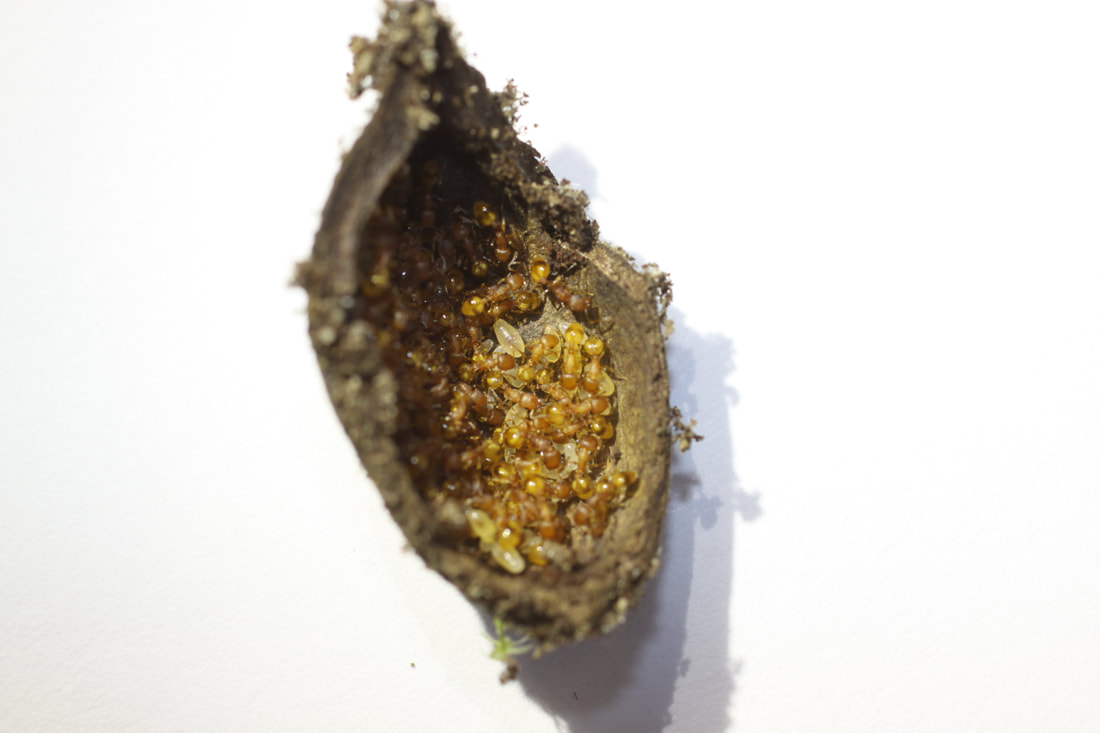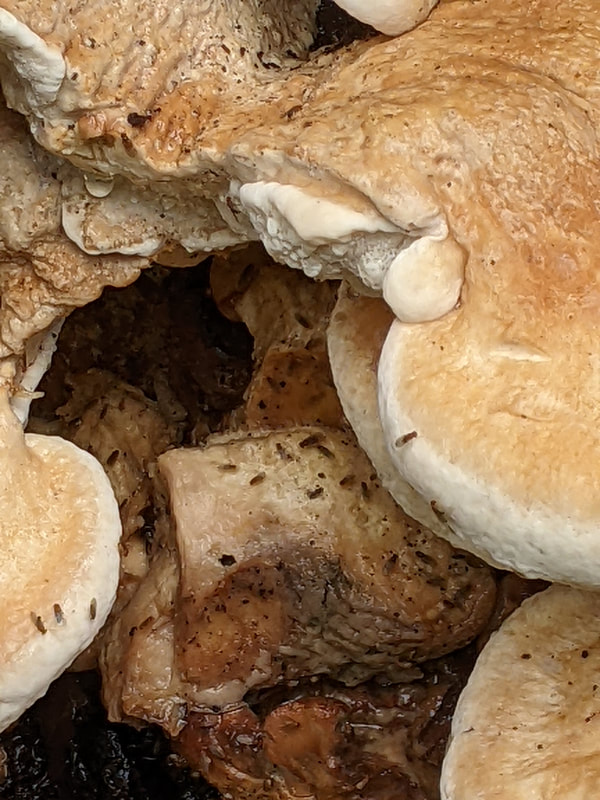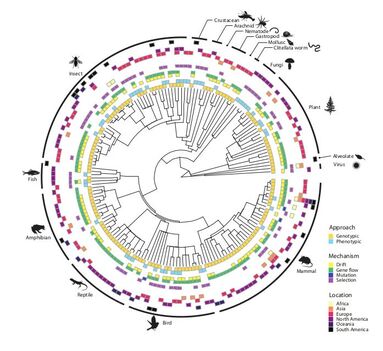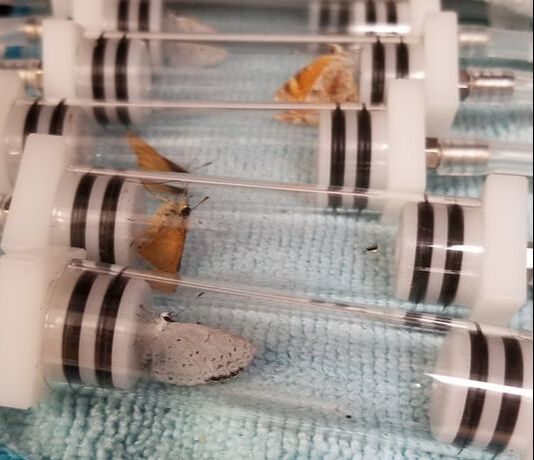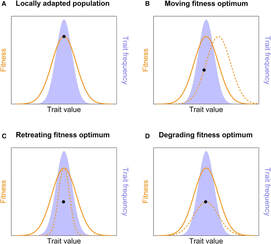Research overview
We study how inter- and intra-specific variation in traits shapes organismal responses to environmental change, and in turn, how trait variation is altered by these shifting environmental conditions. In general, we address these topics using thermal physiological traits within arthropod study systems, and we focus on contemporary environmental change drivers including global climate change and urbanization. As evolutionary ecologists, we examine the ecological and evolutionary mechanisms that underpin organismal responses to environmental change. For example, we address the question of whether phenotypic plasticity and contemporary evolution of thermal physiological traits can keep pace with recent climate change and urban heat island effects. Although our research is grounded in fundamental questions in evolutionary ecology, it also informs applied research questions by identifying populations that are the most vulnerable to global change.
We study how inter- and intra-specific variation in traits shapes organismal responses to environmental change, and in turn, how trait variation is altered by these shifting environmental conditions. In general, we address these topics using thermal physiological traits within arthropod study systems, and we focus on contemporary environmental change drivers including global climate change and urbanization. As evolutionary ecologists, we examine the ecological and evolutionary mechanisms that underpin organismal responses to environmental change. For example, we address the question of whether phenotypic plasticity and contemporary evolution of thermal physiological traits can keep pace with recent climate change and urban heat island effects. Although our research is grounded in fundamental questions in evolutionary ecology, it also informs applied research questions by identifying populations that are the most vulnerable to global change.
|
Highlighted papers on urban evolution
Data papers on urban thermal adaptation (spanning ants, isopods, and fruit flies) Diamond, S. E., L. Chick, A. Perez, S. A. Strickler, R. A. Martin. 2018. Evolution of thermal tolerance and its fitness consequences: parallel and non-parallel responses to urban heat islands across three cities. Proceedings of the Royal Society B 285: 20180036. https://doi.org/10.1098/rspb.2018.0036 Martin, R. A., L. D. Chick, M. Garvin, S. E. Diamond. 2021. In a nutshell, a reciprocal transplant experiment reveals local adaptation and fitness trade-offs in response to urban evolution in an acorn-dwelling ant. Evolution 75:876-887. https://doi.org/10.1111/evo.14191 Yilmaz, A. R., S. E. Diamond, R. A. Martin. 2021. Evidence for the evolution of thermal tolerance, but not desiccation tolerance, in response to hotter, drier city conditions in a cosmopolitan, terrestrial isopod. Evolutionary Applications 14:12-23. https://doi.org/10.1111/eva.13052 Yilmaz, A., A. Yoder, S. E. Diamond, R. A. Martin. 2022. Adaptation to urban heat islands enhances thermal performance following development under chronic thermal stress, but not benign conditions in the terrestrial isopod Oniscus asellus. Physiological and Biochemical Zoology 95:302-316. https://doi.org/10.1086/720333 Diamond, S. E., R. A. Martin, G. Bellino, N. Crown, E. G. Prileson. 2022. Urban evolution of thermal physiology in a range-expanding, mycophagous fruit fly, Drosophila tripunctata. Biological Journal of the Linnean Society 137:409-420. https://doi.org/10.1093/biolinnean/blac094 |
|
Review/perspective/synthesis papers on urban evolution
Diamond, S. E., R. A. Martin. 2021. Evolution in cities. Annual Review of Ecology, Evolution and Systematics 52:519-540. https://doi.org/10.1146/annurev-ecolsys-012021-021402 Diamond, S. E., E. Prileson, R. A. Martin. 2022. Adaptation to urban environments. Current Opinion in Insect Science 51:100893. https://doi.org/10.1016/j.cois.2022.100893 Diamond, S. E., R. A. Martin. 2021. Physiological adaptation to cities as a proxy to forecast global-scale responses to climate change. Journal of Experimental Biology 224:jeb229336. https://doi.org/10.1242/jeb.229336 |
|
Highlighted papers on urban ecology
Perez, A., L. D. Chick, S. Menke, J. P. Lessard, N. J. Sanders, I. Del Toro, N. Sundebo, S. E. Diamond. 2022. Urbanization dampens the latitude-diversity cline in ants. Insect Conservation and Diversity. https://doi.org/10.1111/icad.12598 Diamond, S. E., H. Cayton, T. Wepprich, C. N. Jenkins, R. R. Dunn, N. M. Haddad, and L. Ries. 2014. Unexpected phenological responses of butterflies to the interaction of urbanization and geographic temperature. Ecology 95:2613-2621. https://doi.org/10.1890/13-1848.1 |
|
Highlighted papers on climate change
Diamond, S. E., R. A. Martin. 2020. Evolution is a double-edged sword, not a silver bullet, to confront climate change. Annals of the New York Academy of Science 1469:38-51. https://doi.org/10.1111/nyas.14410 Diamond, S. E. 2018. Contemporary climate-driven range shifts: putting evolution back on the table. Functional Ecology 32:1652-1665. https://doi.org/10.1111/1365-2435.13095 |
